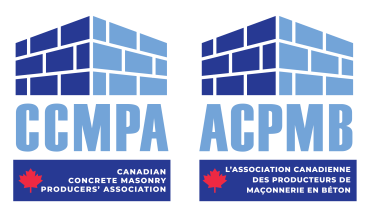
Are you in the know?
I'm Andrea McChesney, the Executive Director of the CCMPA, and we want to ensure you and your team have all the access to the latest and greatest in CCMPA activities and industry buzz.
Sincerely, Andrea & your CCMPA team.
Masonry Canada is pleased to present this technical bulletin about Canada’s building science research results that further reinforce the quality, durability and value of concrete and masonry products in buildings.
Masonry is a traditional and time-tested material that is often compared with new and innovative alternatives. The durability of masonry wall systems is witnessed across Canada and around the world, and the numerous advantages of masonry are well appreciated by builders and designers alike. The Fungal Resistance Testing (FRT) project was conducted by Bodycote Materials
Testing Canada Inc. funded by the Ontario Concrete Block Association, Cement Association of Canada, and Masonry Canada. FMRT testing examined how well—and not so well—seven common materials used in building systems resisted mould growth.
A Canadian research study completed in September 2003, has shown definitive results that wood and drywall products are sources of mould growth. The study also showed that clay brick and concrete products tested did not sustain growth. The
MIL-STD 810E was developed for the US Military (same as ASTM C1338) but includes a condensation period of 28 days to challenge materials. This is representative of conditions inside buildings in a cold climate. The testing, conducted by a ISO/IEC 17025
accredited independent laboratory with ISO 9002-1994 included seven samples of commonly used building materials.
This research study demonstrates that under identical conditions conducive to the growth of fungal mould, no mould is produced on clay brick, concrete block and concrete, whereas, substrates made of wood and paper products produced measurable amounts. These findings supply essential information for architects, facility planners and engineers to reduce liability, improve indoor air quality and lessen health concerns in new and renovation projects.